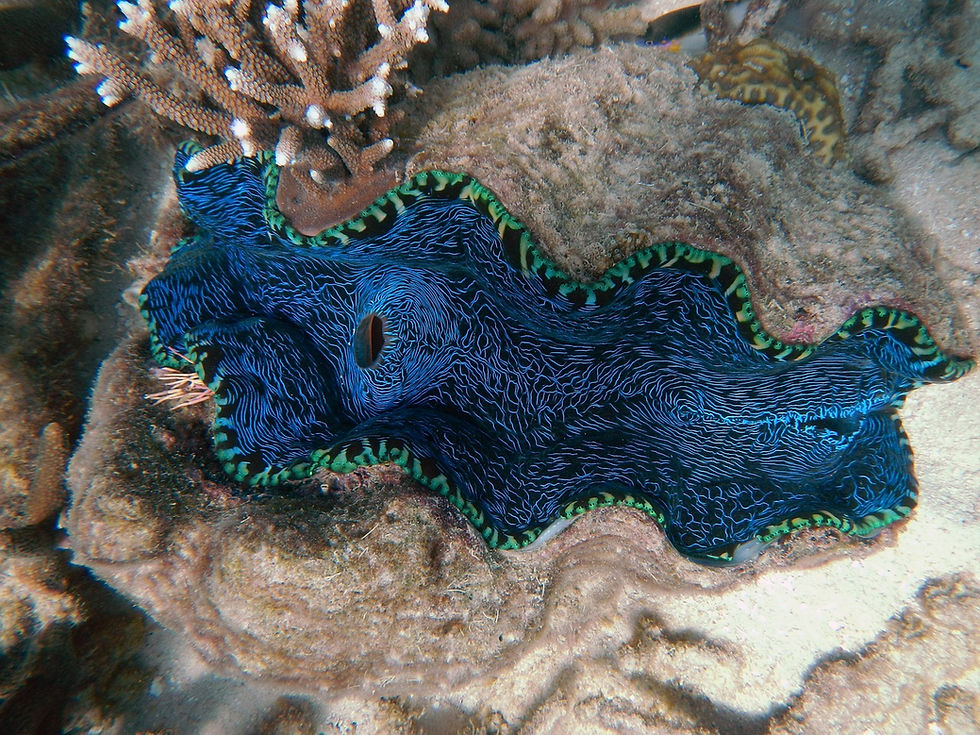Character-based TV & Movie Tropes That I Hate | Personal Opinion
- PracticalPisces
- Jan 11, 2023
- 7 min read
Updated: Jan 29, 2023

Plain Ole Vanilla Protagonist
The main character exists to react to the antics of those who orbit or live around them. This character does not have much personality themself but works as a foil to their more-developed friends. It is possible to make a compelling character without making them flatter than Stanley. In fact, giving them more personality is likely to make more people identify with them. Putting the viewer into the life of a character that does relatively little increases the chances that they will want to follow the other characters more. This is the reason why spin offs exist, for the most part. These characters may devolve into Clean, Green, Fiends (Mary Sues/Gary Stus) or evolve into compelling characters. This reaches peak annoyance when the protagonist acts as the center of morality and/or the friend group acts as if they are the most interesting member. Anger is justified when other characters tell the protagonist their worth without the writers ever conveying it through actions.
Examples: Arnold (Hey Arnold), Wubbzy (Wow, Wow, Wubbzy), Penn (Penn Zero: Part-time Hero), Miguel (Coco), Carly (ICarly), Tori (Victorious), Henry (Henry Danger), Meg (A Wrinkle in Time 2018), Carol Danvers (Captain Marvel), etc.
No Leader = No Thoughts
The other heroes, or citizens, cannot save the day without their leader. This is especially annoying if other episodes of the show, or another part of the movie, have/has shown how capable the secondary characters are when alone. This is the reason why when part of a team, it is integral to make leaders out of everyone so that anyone could take over and lead the rest to glorious results. This is not a question of who is the best to lead the flock, but rather a ponderance of whether the individuals within the team have the wits and resolve to complete a task should they be called upon to be the shepherd.
The Powerpuff Girls episode, "Too Pooped to Puff" plays with this trope beautifully. After being taken for granted for long enough, the girls decide to make the citizens of Townsville save the day on their own. Expectedly, the latter have been so dependent on the PPGs to resolve their issues that they often lacked the common sense to piece together the obvious solution to their problem.
This can overlap with Disgraced Until Desperate where the hero is considered a nuisance but he or she is the only one who can restore order. "WhoBob WhatPants?/What Ever Happened to SpongeBob?" is an excellent example of this.
Examples: Penn (Penn Zero: Part-time Hero), Donkey Kong (Donkey Kong Country TV Series), SpongeBob (more or less, SpongeBob SquarePants), etc.
Irksome Individual
Any character whose past time or sole purpose is to annoy the ever-living shi(f)t out of the protagonist or any of the other major characters. A comic relief character gone wrong, if you will. This character either has no respect for boundaries or has a strange inability to understand what they are. This is irredeemable if the protagonist(s) is/are the one(s) responsible for irritating those around them. It can sometimes be done to send a message about seeing things from the perspective of someone else. When not devolving into a Pristinely Positive Person (one who cannot help but try to infect everyone, including those who have a right to be sad or angry, with their chronic upbeat disposition - Mickey Mouse for example) attempting to force their way of life on an irritably depressed or realist character, this person can open the eyes of others and make them appreciate the good in their lives. Unfortunately, these characters typically get a perverse joy out of annoying their peers, sometimes to the point of making it a game or a tradition. I hate to find myself on the side of the villain, depending on the writer of course, but sometimes I wish that these types of characters would be vaporized. They should leave people to their thoughts. Annoying is not a synonym of endearing.
Examples: SpongeBob SquarePants & Patrick Star (Ditto the former), Ogo (Robot & Monster), Cheasel T. Weasel (Food Fight), Cloud Guy (Trolls: The Beat Goes On), Cosmo and Sparky (The Fairly OddParents), Fanboy and Chum Chum (Ditto), Sheen (Planet Sheen), Larry (more or less, Penn Zero: Part Time Hero), etc.
You Suck, Indefinitely
Literally the opposite of the above, this is the case whenever another character, or the majority of characters, dislike(s) the protagonist for arbitrary or no reason. I am sure people like these exist in reality, but I find them insufferable in fiction. If someone has a problem with another, it better be a logical one.
Often this trope appears to conflict with the notion that everyone likes the protagonist because he/she has a crowd-pleasing personality. No, it does not (typically) represent those who dislike Mary Sue characters because the individuals who dislike the protagonist often have no good reason to. You cannot send the message that "not everyone will like you" unless you give the dissenter(s) some understandable gripe with the target of the moral.
When it is done for comedic purposes, it can work very well. Take Mrs. Peenman from The Mask for example. However, when the dissenter(s) take(s) their anti-hero role too seriously, the episodes that feature them heavily can easily fall into the mean-spirited slot. Someone being outcasted from their family for being the runt of the little is one example. A teacher or coworker unfairly deciding that they want nothing to do with the main character and/or wanting to impede their success is an all-too-common scenario. Asserting that everyone's life would be better without the main character is the most egregious case.
Note: If you find yourself generally unhappy with life, you do not have to make others lose their happiness.
Examples: Robot's Family (Robot & Monster), Everyone - "It's a Wishful Life" (The Fairly OddParents), Bikini Bottomites - "Stuck in the Wringer" (more or less, SpongeBob SquarePants), Gordy - "Nobody Doesn't Like TJ" (Recess), Teddy's Teacher - "Teddy's Little Helper" (Good Luck, Charlie), Mrs. Hayfer (Drake & Josh), Jared - "Like Hell" (The King of Queens), etc.
Bumbling, Fumbling Parents
Someone once said that children's media is attempting to desensitive them into believing that they are more mature than they really are so that they will ignore their parents' guidance and be easy prey for predators. What I can say with confidence is that this trope needs to die outside of cases where it meant to be a bad thing. Neglectful push over parents cannot expect to be taken seriously by their kids. They are often just as, or considerably less, mature as/than their children. If they want to be respected, they should be portrayed as strong humans: energetic, passionate, honest, unafraid to defend their beliefs, and know how to convey severity through body language and vocal tone. They should know how to convey the message that their child's wrongdoing not only puts the latter in harms way, but also risks jeopardizing the relationship they have with their parent(s) or guardian(s). Children should fear losing the respect, admiration, adoration, and support of their parents. They should not be acting as if they do not need it. That is bad path to start down.
Examples: Bill and Nancy Green (Big City Greens), Darryl and Roxanne Parks (A.N.T. Farm), Bob and Amy Duncan (Good Luck, Charlie), Mr. and Mrs. Turner (Fairly OddParents), Hank and Barb Thunderman (The Thundermans), Jake and Siren Hart (Henry Danger), etc.
Little Terror, Big Presence
A small child, or a preteen, makes it his or her goal to ruin the life/lives of the protagonist(s) for the fun of it. It does not matter if the protagonist(s) have never wronged this character, at least not intentionally. This child can be a master manipulator, one who takes advantage of parental neglect, or one who seems to be the spawn of Beelzebub. What makes me unable to stand this trope is when the child does not receive anything resembling a punishment for his or her actions. A short-term punishment that does not change their character for the better is not helpful. Let these characters grow as characters. Or, at the very least, give them a reason to act that way they do. This trope is particularly common in Dan Schnieder shows, but there are plenty of examples outside of them.
Examples: DW (Arthur), Megan (Drake & Josh), Chuck (ICarly), Rico (Hannah Montana), Wendy McMillan (to a lesser extent, Jessie), Piper (Seasons 1-4, Henry Danger), Vicky (Fairly OddParents), Shaquilla (The Parkers), etc.
Smart People Are Dull/Pricks
An episode of a show, or the show/movie as a whole, portrays a smart character, or all of the main characters acting like they believe smart people to be, in order to argue that people of high intelligence are boring and pompous. If it is a single character, they will feel the need to flaunt their superiority by revealing their wealth of knowledge or by making others feel stupid for not thinking deep enough. Some characters contrast this by attempting to use their intelligence to be liked, but often their peers just find them incoherent and annoying. This sends the message that critical thinking is the enemy of fun. For example, prioritizing safety over spontaneity is apparently a bad thing. There is plenty of fun to be had with common sense intact. Learning to spend time meditating on the past, present, and future can actually make life more exciting. Philosophy and psychology are interesting topics that are fundamental to human existence because it is critical for us to understand why we do things and how we can be better as individuals.
Examples: Trolls: The Beat Goes On - "Whimsy Wasps" & "Fun Branch," SpongeBob SquarePants - "Patrick SmartPants," The King of Queens - "Offensive Fowl," Bailey (Suite Life on Deck), Ravi (Jessie), etc.
Stay Away from My Wo/Man!
A character of the opposite sex takes an interest in someone and the significant other of the latter sees them as a threat immediately. This may be because the girl or boyfriend is jealous of the protagonist for having a wealth of personality or because he/she noticed that the protagonist has better chemistry with the romantic partner. This may devolve into a Shove Triangle or evolve into a Nice Girl/Guy Swap wherein the protagonist briefly, or continuously, dates the ex of the hostile jealous character.
This trope is all the more egregious when it appears in adult entertainment and the love interest cheats with, or is clearly more interested in, the main or another major character and their significant other is a hulking threat to be recognized. This comes up as a joke sometimes, such as in The Big Bang Theory's "The Apology Insufficiency" wherein Leonard flirts with an FBI agent and she replies, "can my six-foot(plus), Navy Seal husband come with us?"
Examples: The Fresh Prince of Bel-Air - "All Guts, No Glory," The Parkers - "The Dates from Hell," The Suite Life of Zach and Cody - "The First Day of Highschool," etc.




_edited.jpg)





Comentarios